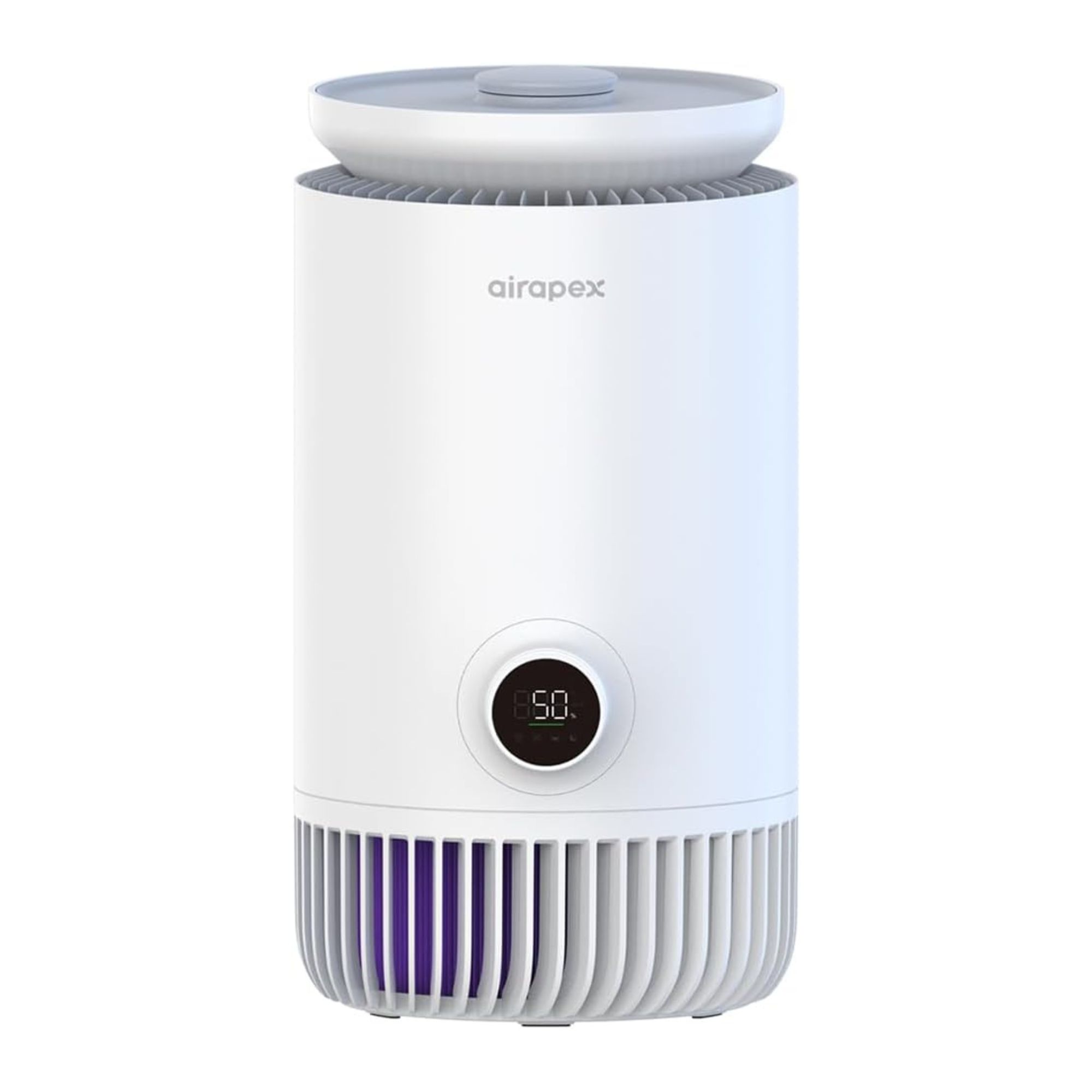Should you buy an air purifier or a humidifier? Experts debunk which option is best for allergies and a good night’s sleep
I solve the air purifier vs humidifier debate once and for all

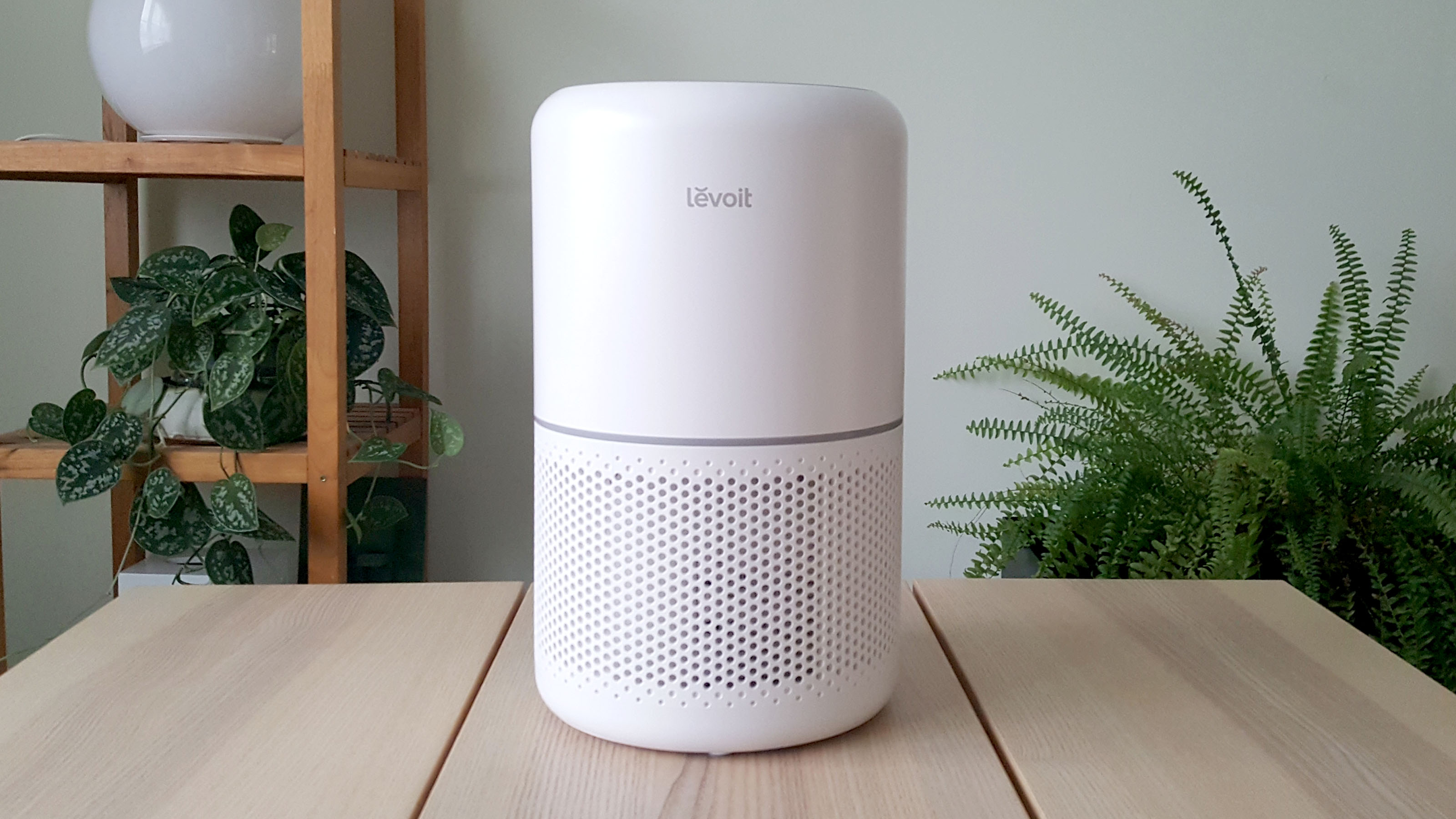
Sign up to our newsletter for style inspiration, real homes, project and garden advice and shopping know-how
You are now subscribed
Your newsletter sign-up was successful
If you’re struggling with springtime allergies, waking up with a stuffy nose, or spending your days coughing and spluttering, your Googling may have pushed you in the direction of both air purifiers and humidifiers. But when it comes down to it, which one will suit you best?
The best air purifiers and the best humidifiers are inherently two very different appliances, but both can be extremely helpful throughout the year. In fact, they can soothe allergy sufferers and help those with lower immune systems breathe easier, sleep easier, and ultimately feel much better. However, choosing between the two can be difficult.
That’s why I’ve spoken to experts to solve the air purifier vs humidifier debate, comparing everything from how they work to their effectiveness and affordability. So, this is how to determine whether you need an air purifier or a humidifier.
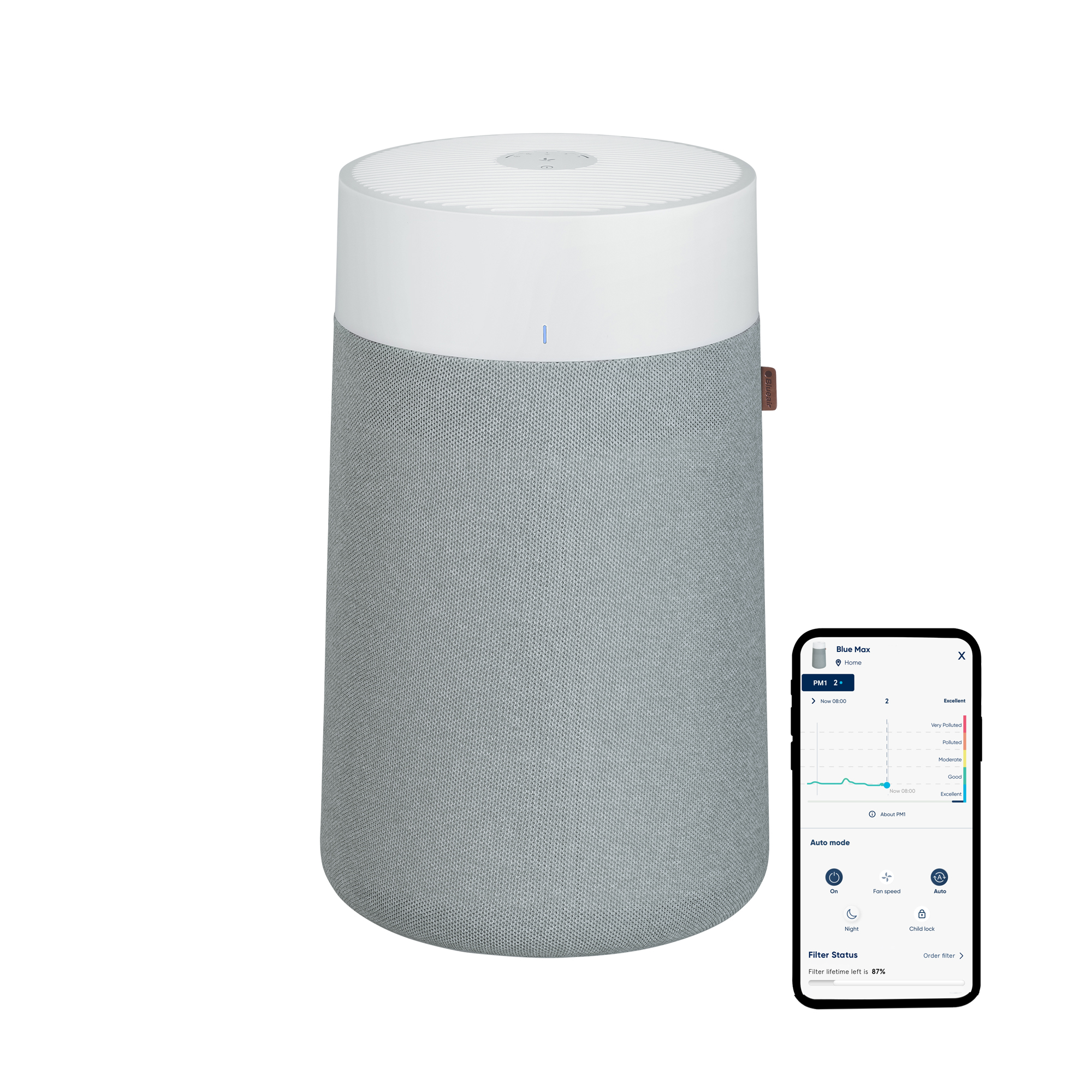
Crowned the 'best overall' air purifier we've tested, this air purifier offers unrivalled performance, filtering out 99.97% of airborne particles down to 0.1 microns in size - this is a cut above other air purifiers, which typically only promise to filter down to 0.3 microns.
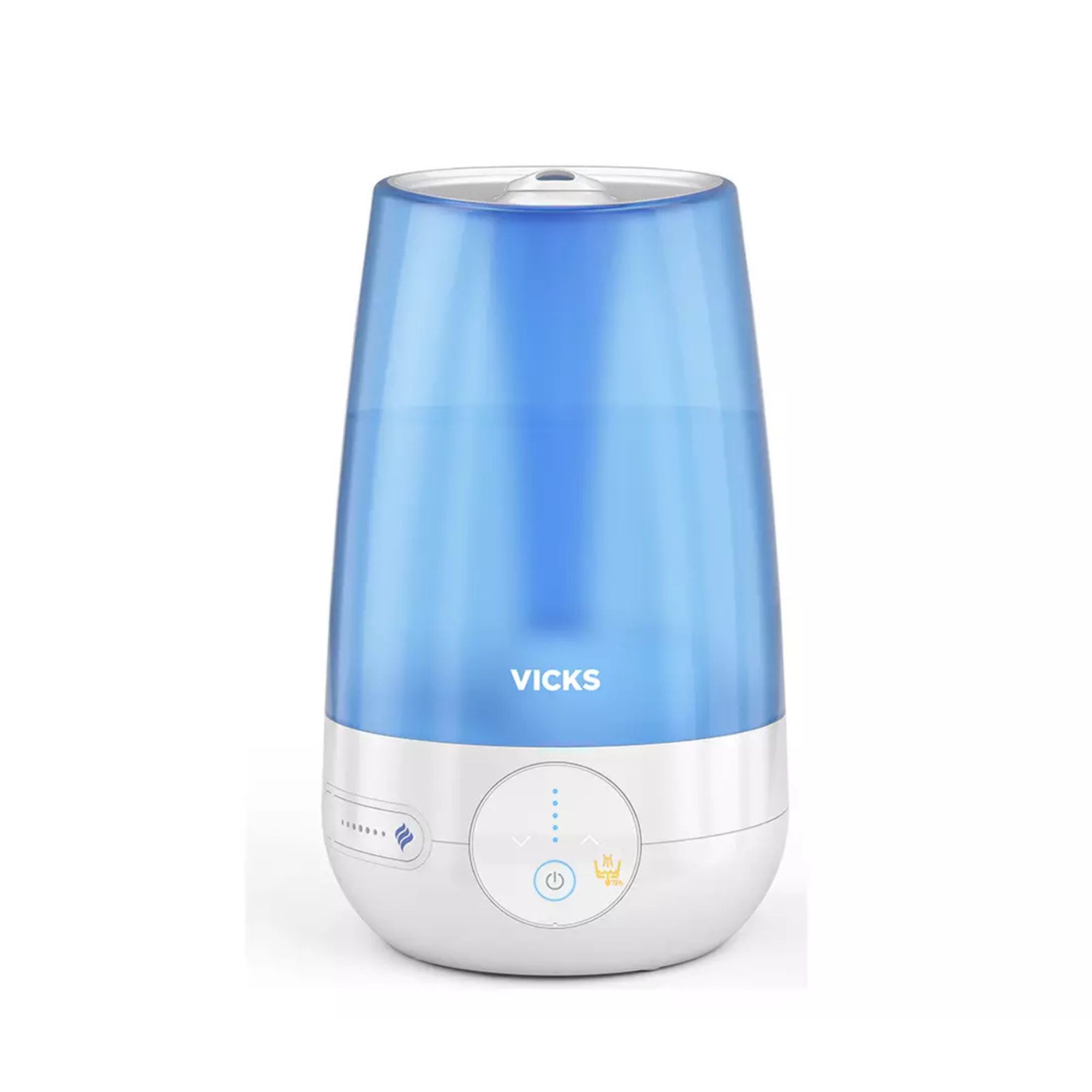
Suitable for rooms up to 35m², this humidifier releases a cool and visible mist into the air. It also comes with digital touch controls and a 180-degree mist nozzle. You can even add the essential oil of your choice to aid your easy breathing.
What’s the difference?
Although air purifiers and humidifiers are often used to obtain similar results, they’re ultimately very different appliances that work in very different ways.
And at their core, air purifiers are designed to purify the air in your home of airborne pollutants like dust, pet dander, pollen, and VCOs. In fact, how well they remove these nasties is something we measure when we test air purifiers at Ideal Home.
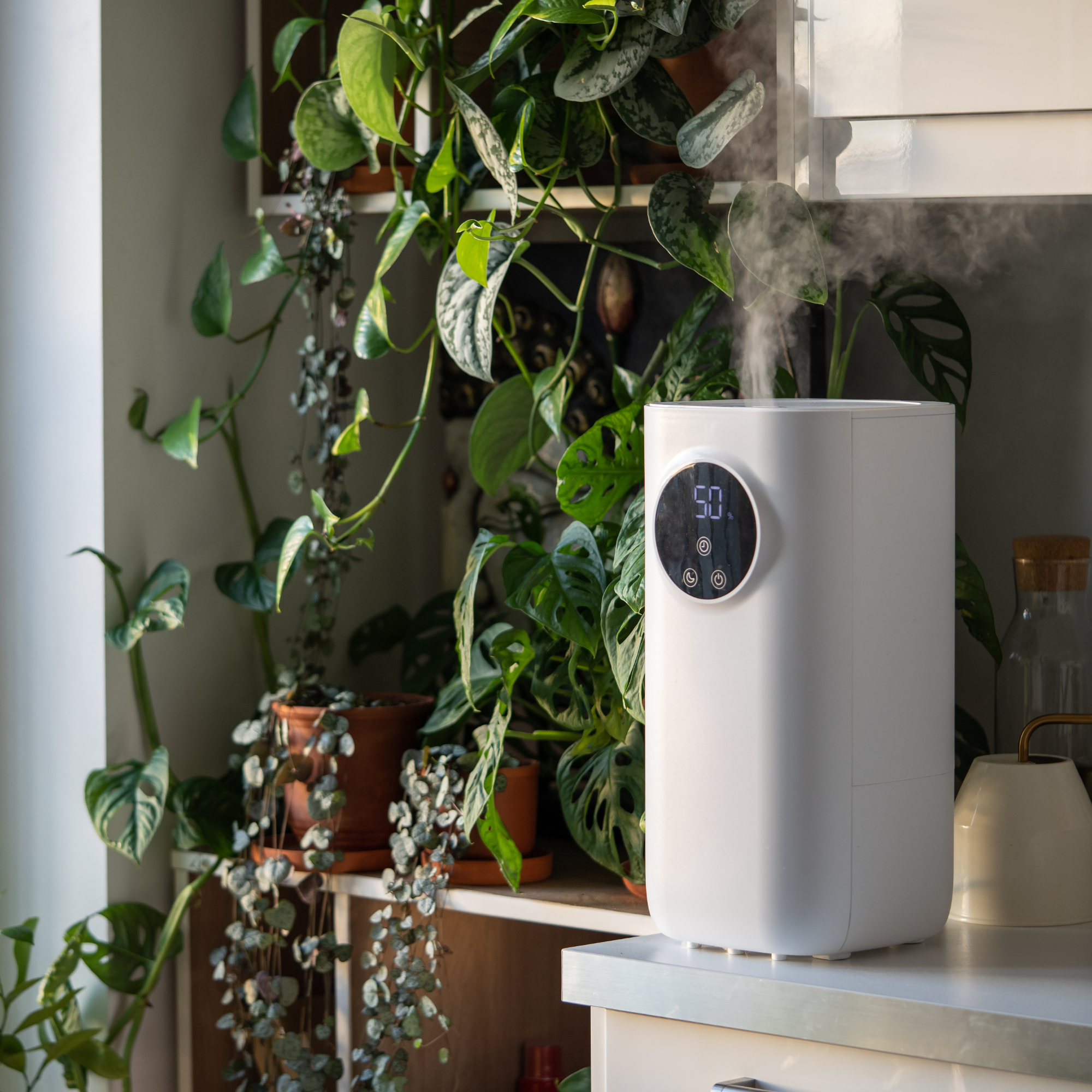
They do this by sucking in the air and using filters to catch the pollutants and reintroducing the filtered, cleaner air back into your home. However, different air purifiers use different filters, so it’s very important to understand which type of air purifier you need.
Humidifiers work by releasing water vapour into the air and increasing the overall humidity of a room. They typically do this by blowing air over a wet filter or creating a mist that’s then expelled into the air. The main aim of a humidifier is to add moisture to a dry room and help you maintain the ideal humidity of the room, which should improve sleep and aid overall health and well-being.
Sign up to our newsletter for style inspiration, real homes, project and garden advice and shopping know-how
Which is better for your allergies?
Allergies come in many shapes and forms, from allergies to pet dander to pollen. And in the air purifier vs humidifier debate, there’s no doubt that air purifiers help allergies better than humidifiers. After all, they tackle the root cause of your allergy symptoms.
As Dr. Jaspreet Dhau, VP of R&D at Molekule explains, ‘Air purifiers are designed to reduce allergen particles in the air, such as dust mites, pet dander, pollen or mould spores. Air purifiers have been found to be effective to reduce exposure to these triggers.’
If you opt for an air purifier that has a HEPA filter, it’s more likely to help hay fever, as these filters are designed to capture at least 99.97% of all allergens present in the air. This means your home is almost entirely free of potential triggers, and you can pollen-proof your home effectively.
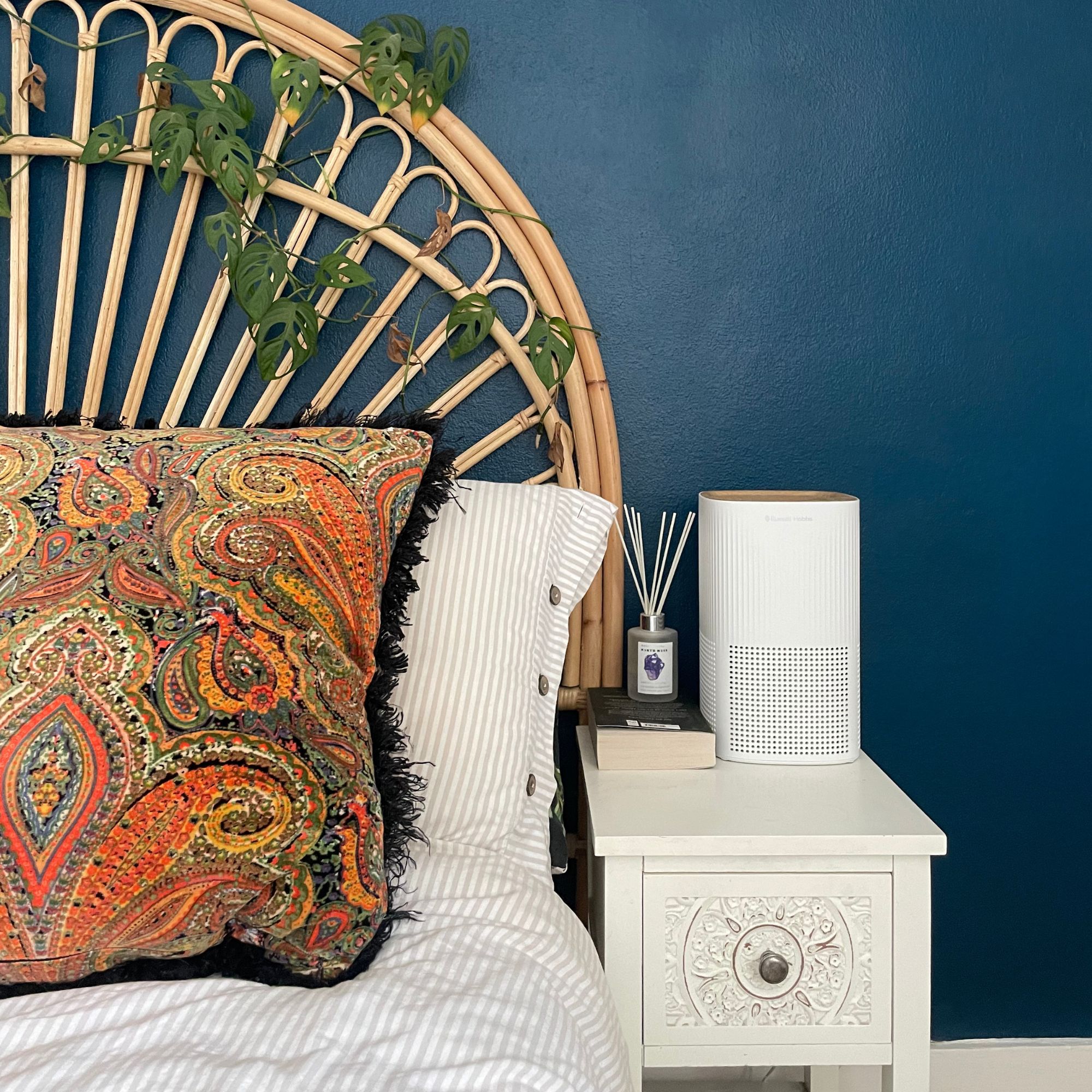
This is something I experienced myself while testing the Shark NeverChange5 Air Purifier, as I found my hay fever symptoms (which typically make me feel incredibly stuffy and have itchy eyes) were drastically reduced when I used an air purifier for a couple of hours during the day and at night. Even today, I continue to use an air purifier throughout the year to keep my hay fever in check.
It’s worth noting that an air purifier might not be worth it if you choose to buy a cheaper model without a HEPA filter, though, as it won’t be as effective in reducing the cause of your allergies in your home.
On the other hand, humidifiers tackle the allergy symptoms themselves, rather than the airborne pollutants that cause the allergies or illnesses. Because of this, it’s largely seen as a short-term solution rather than a long-term one. But that’s not to say that a humidifier can’t help you at all.
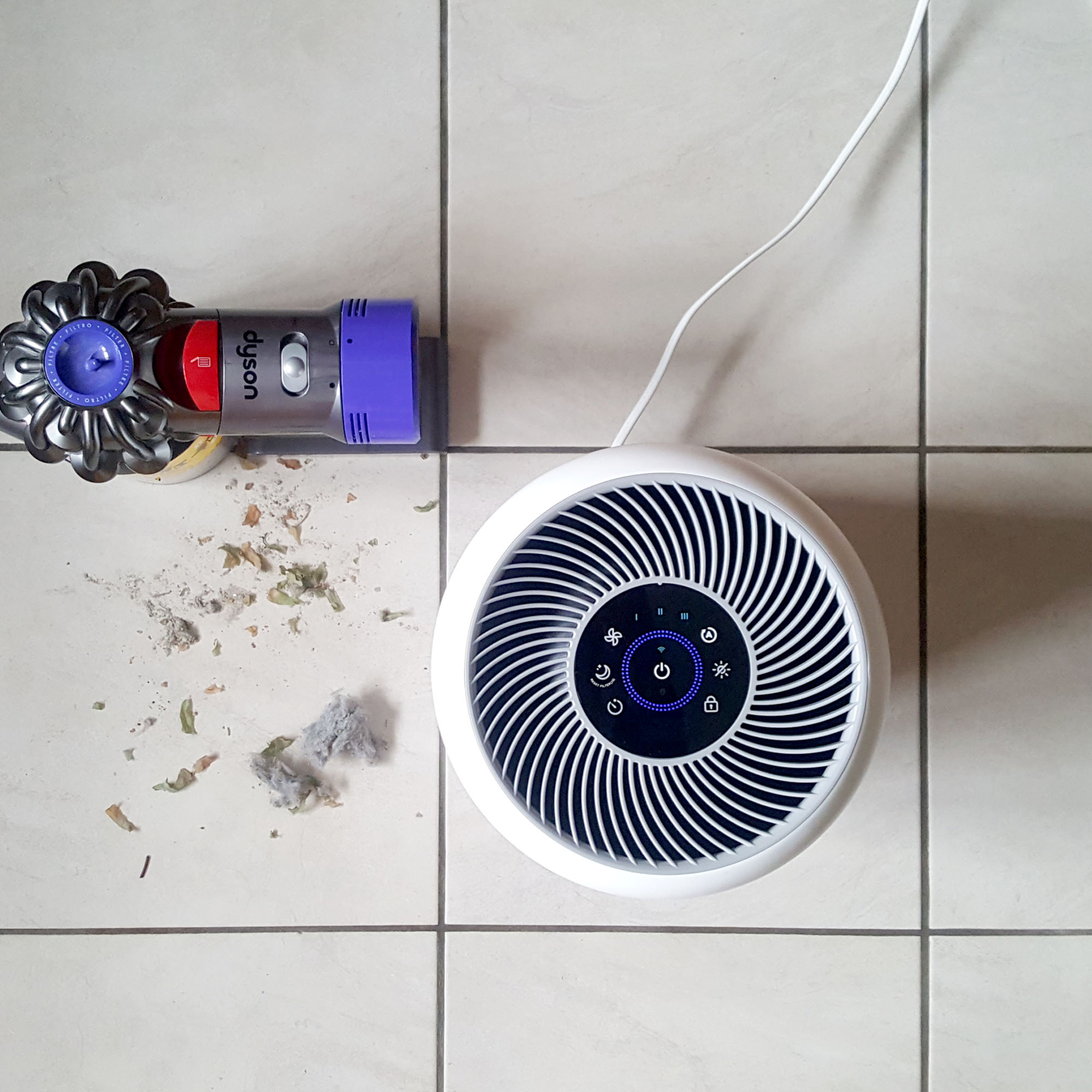
As Dr. Jaspreet explains, ‘Humidifiers, on the other hand, have no impact on allergen levels. Instead, they may help allergy symptoms feel less severe if your nasal passages are dry and irritated.’ This can ultimately make you feel like you’re on top of your allergies, as you don’t have to battle the physical symptoms that you usually would.
However, Martin Seely, the CEO and sleep expert at MattressNextDay, warns that, if used too much, humidifiers can actually make allergies worse.
‘Humidifiers don’t remove allergens from the air, and if not cleaned properly, they can actually make allergies worse by spreading mould or bacteria,’ he says. ‘Over-humidifying can also create an environment where dust mites thrive, so it’s important to regularly check humidity levels.’
Which is better for sleep?
If you’re constantly searching for ways to sleep better, the air purifier vs humidifier debate has probably already crossed your mind. And, ultimately, they can both help you sleep soundly. Which one you choose is more of a personal choice, though.
Ideal Home’s Senior Digital Editor, Jenny McFarlane, swears by using a humidifier to help her two young daughters get to sleep. She told me, ‘We have a humidifier in each of the kids' rooms overnight, and they double as a nightlight and white noise machine, which helps them settle (relatively) faster. When they're fighting off a cough or stuffy nose, the humidifiers add moisture to the air in their rooms, which seems to soothe their breathing while they sleep, too.’
Humidifiers are also extremely effective for people who snore as a result of nasal congestion and throat irritation, as the extra moisture loosens the mucus and allows you to breathe easier during the night. This can also result in longer, deeper sleep periods.
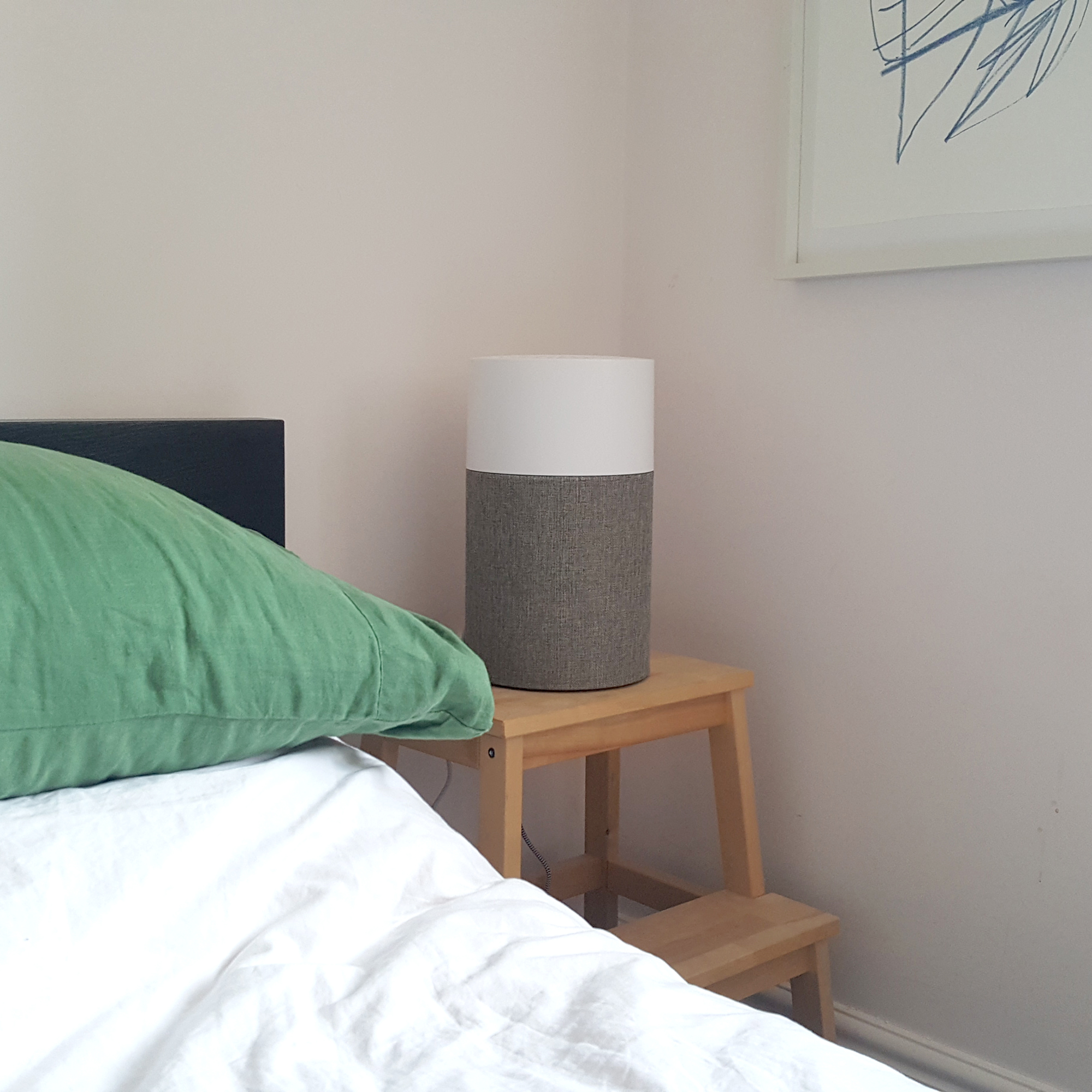
However, air purifiers can also help you sleep better by filtering out the allergens and airborne pollutants that may otherwise interrupt a good night’s rest. This is echoed by Dr. Jaspreet, who says, ‘34% of people blame allergies for their sleep problems, second only to temperature (39%). Allergy triggers mentioned above are very small and can fragment into even smaller bits that cover the bed and are stirred up by motion in sleep, which can cause them to float in the air for minutes or hours.’
So, by keeping an air purifier on while you sleep, you can ensure that any nasties stirred up while you move in bed are captured and filtered out of the air so they don’t disturb you. There are some caveats to an air purifier’s ability to help you sleep better, though.
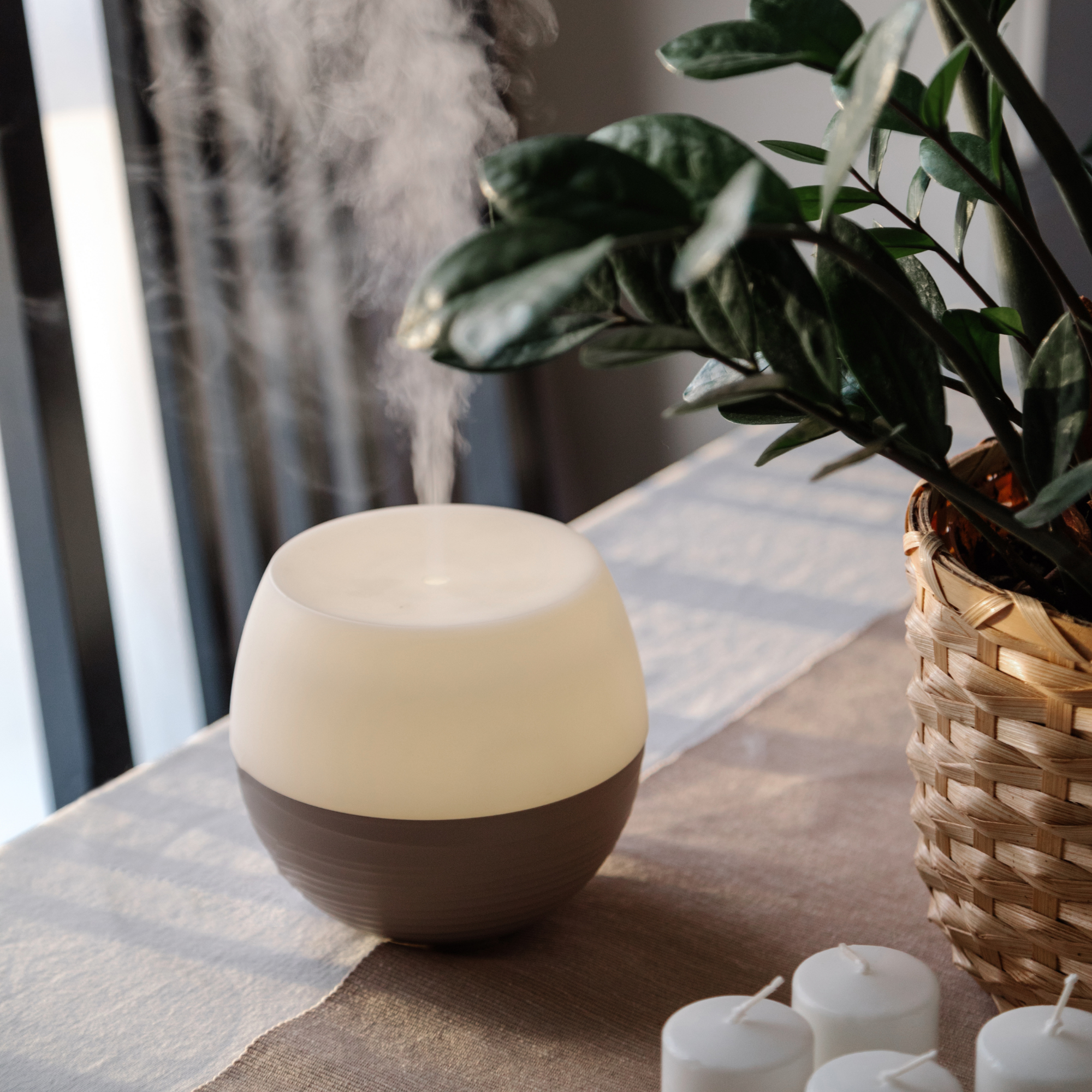
Martin says, ‘Air purifiers don’t add moisture to the air, so if dry air is also an issue, you may still experience discomfort like a dry throat or nasal passages. Some models can also be noisy, so look for one with a quiet or sleep mode.’
It’s also worth mentioning that you need to clean an air purifier regularly and make sure you keep on top of air purifier maintenance. For example, you need to replace an air purifier filter according to the manufacturer’s instructions to ensure it’s working as efficiently as possible at all times.
Which is more affordable?
When you’re choosing between an air purifier and a humidifier, affordability is something you definitely need to consider. After all, everyone wants to spend as little as possible on new appliances for the home.
In terms of air purifiers, the prices vary quite drastically. The cheapest air purifiers we’ve tested so far include the Russell Hobbs Mini Aroma Air Purifier, which retails for £49.99 and the more impressive Blueair Blue Pure 511 Air Purifier, which comes in at £99.99.
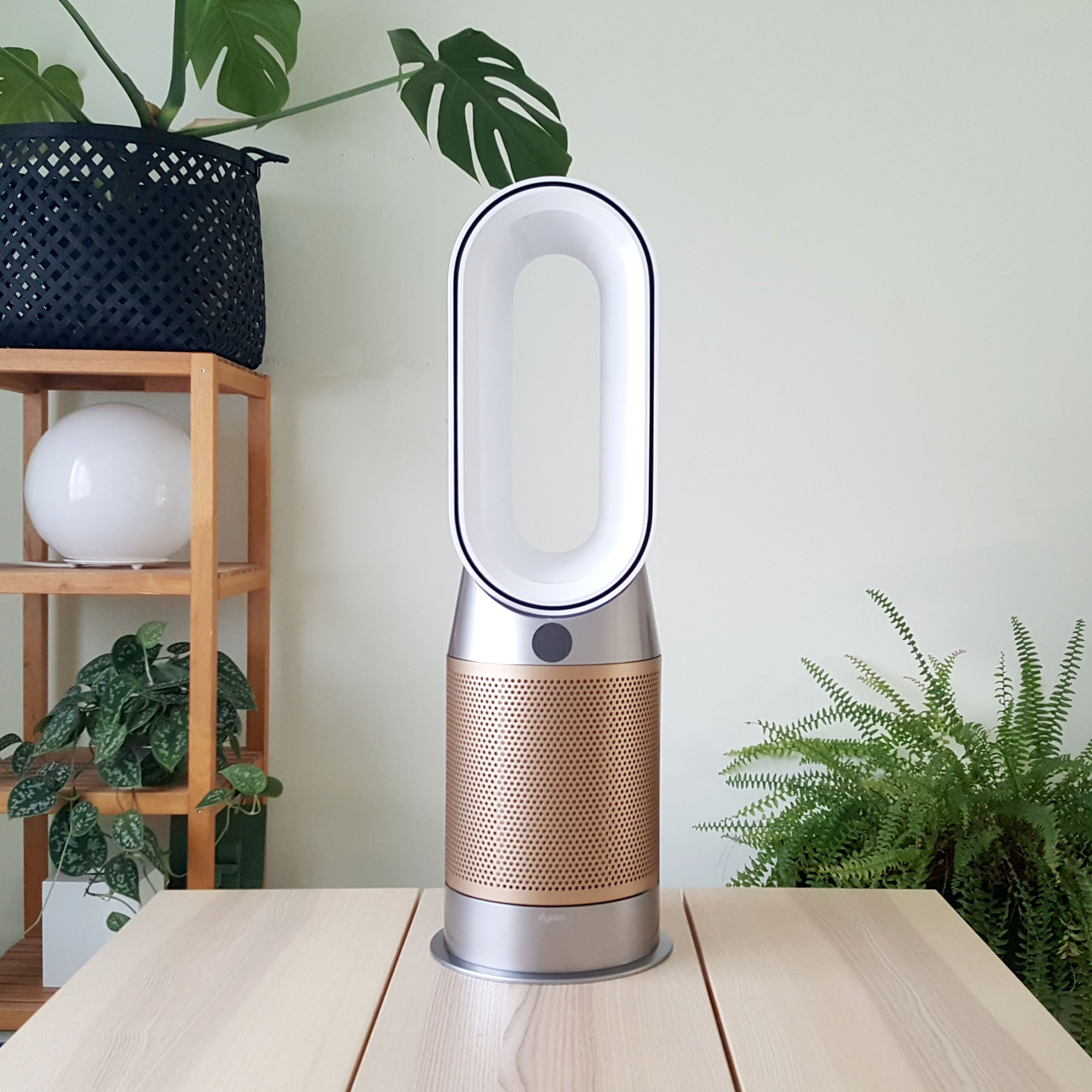
However, you could easily spend a lot more - and at the moment, the most expensive air purifier we’ve tested is the Dyson Purifier Hot + Cool, which will set you back a whopping £699.99. It is also a heater and a fan, though, so it’s technically three appliances in one.
On the other hand, humidifiers are typically a lot cheaper as they tend to be less technically advanced. You can generally pick one up for under £100 - sometimes even as cheap as £20.
Of course, you also need to consider how much it costs to run an air purifier and how much it’ll set you back to keep a humidifier running, but this will depend on the current energy tariffs. But generally, you’ll find that humidifiers are way more affordable than air purifiers.
Which one should you buy?
In the air purifier vs humidifier debate, it’s incredibly difficult to choose a winner, as both appliances have their positives and negatives. Because of this, it’s important to focus on your own concerns and decide based on your specific needs.
Martin agrees, and says, ‘If your main concern is allergies - especially in spring and summer, an air purifier is the clear winner, as it removes allergens from the air and creates a cleaner sleeping environment. If you struggle with dry air, particularly in winter, a humidifier is your best friend for soothing irritation and reducing snoring.’
With this in mind, you could even say that using both is ideal for reducing allergies and aiding sleep, as they should work in tandem to soothe your allergy symptoms and cut the triggers off at the root cause, too. If this is something you want to try out, it could be well worth investing in an air purifier and humidifier combo.
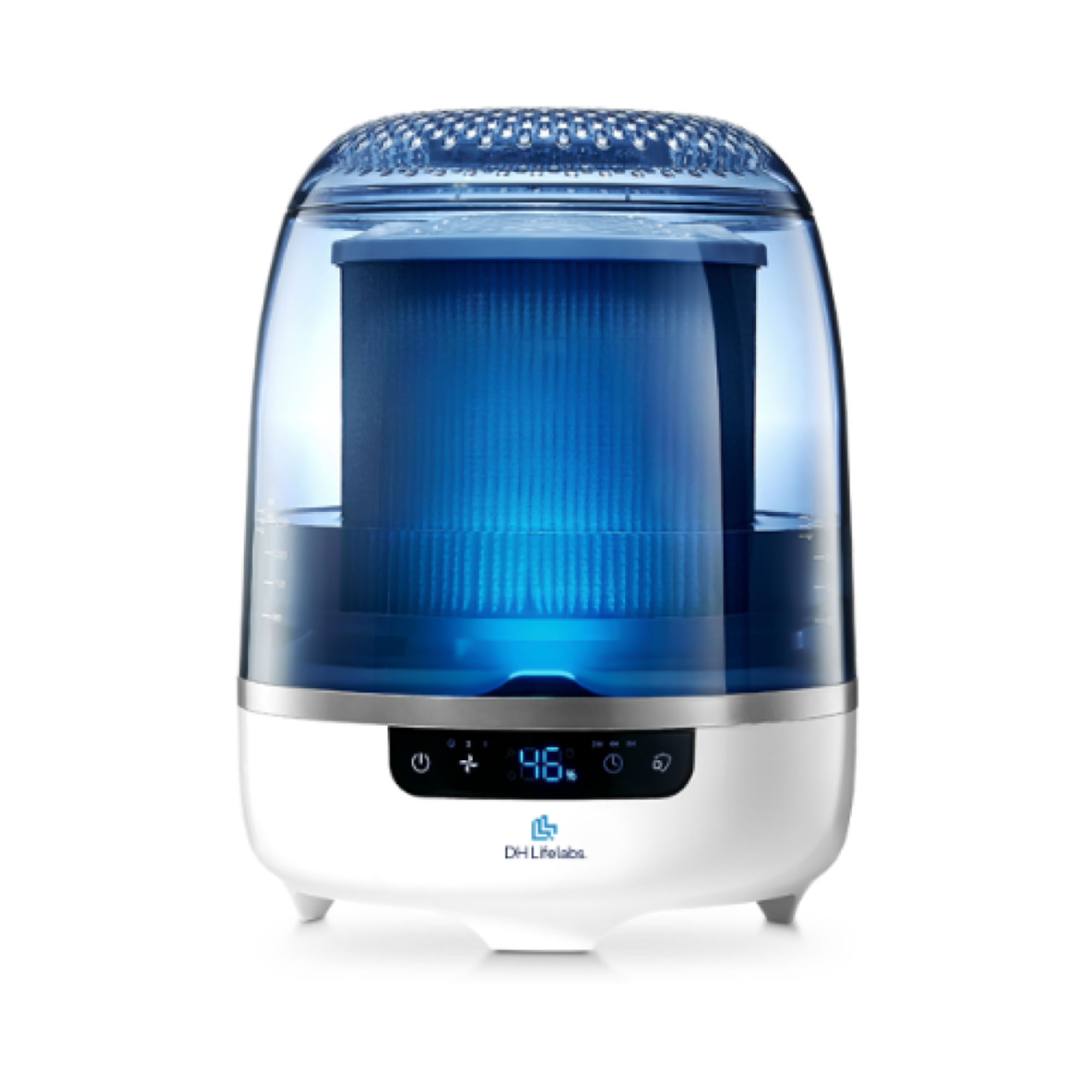
If you're looking for an appliance that will serve as both an air purifier and a humidifier, we can vouch for this one. In fact, it'll eliminate 99.9% of airborne bacteria, viruses, mould, and other airborne pollutants. You can read our full review of it here.
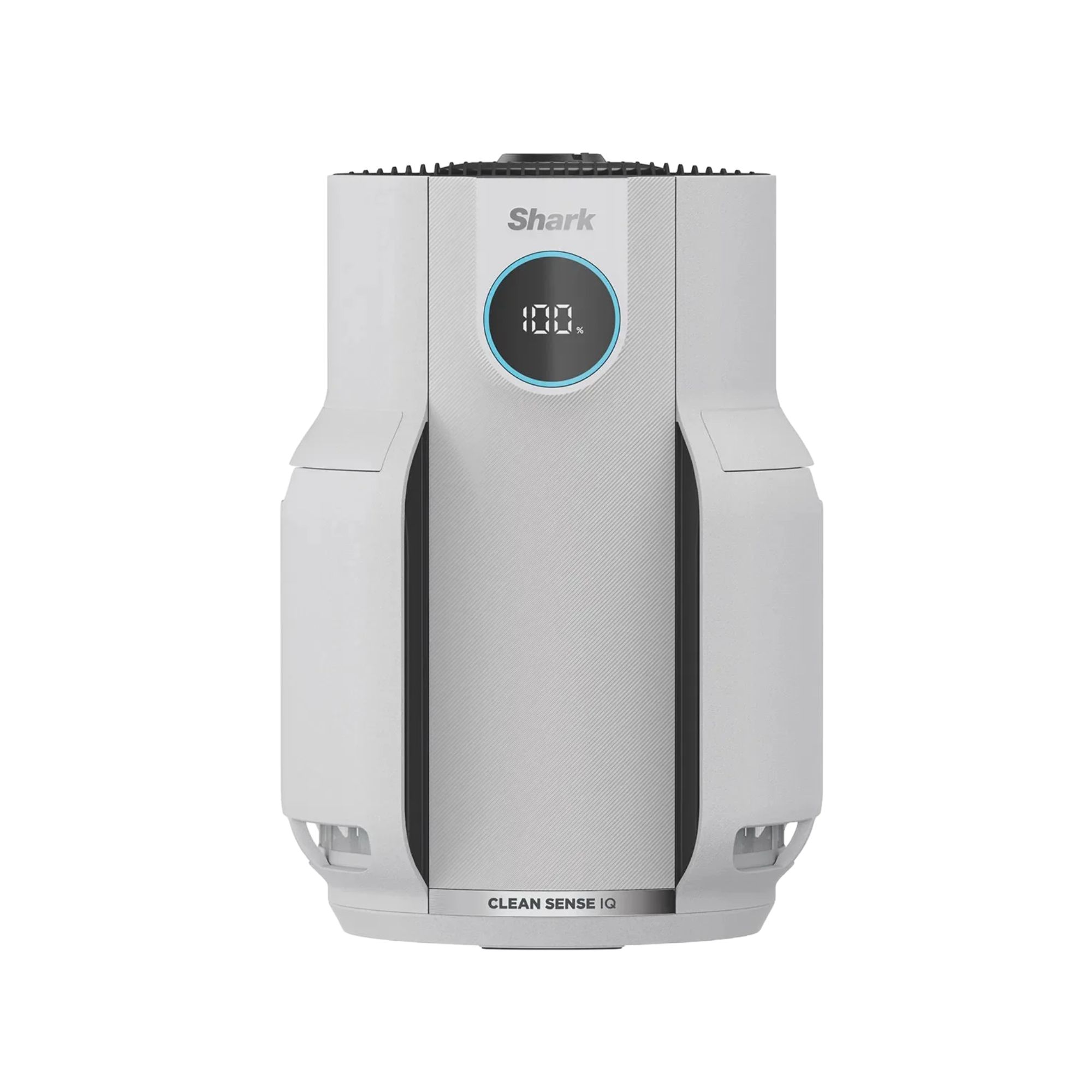
If air purifier wins for you, I recommend this Shark offering. It's the air purifier I use in my own home, and I can vouch for its ability to help reduce hay fever symptoms and aid sleep. And while it's a little pricey, you won't need to change the filter for five years.
FAQs
Do air purifiers make the air dry?
No, air purifiers typically don’t make the air dry, as their main aim is to filter out airborne pollutants and improve the air quality rather than suck out the moisture (which is something the best dehumidifiers do).
However, it’s important to note that prolonged use of an air purifier can make people think that the air is becoming drier, as the increased air circulation speeds up evaporation of moisture on surfaces, making them dry out quicker. This will be very minimal, though, and in most cases you’ll barely notice it.
Is a humidifier or air purifier better for a cough?
Ultimately, this all depends on what is causing the cough. If you’re coughing due to cold or dry air, there’s no doubt that the extra moisture from a humidifier will ease your symptoms and help you feel better.
If your cough is caused by poor air quality or allergies like dust mites or hay fever, however, it’ll be better to use an air purifier as it will improve the quality of your air and filter out these cough-inducing pollutants.
So, which one will you be buying? An air purifier or a humidifier?

Lauren Bradbury has been the Content Editor for the House Manual section since January 2025 but worked with the team as a freelancer for a year and a half before that. She graduated with a Bachelor’s degree in English and Creative Writing from the University of Chichester in 2016. Then, she dipped her toe into the world of content writing, primarily focusing on home content. After years of agency work, she decided to take the plunge and become a full-time freelancer for online publications, including Real Homes and Ideal Home, before taking on this permanent role. Now, she spends her days searching for the best decluttering and cleaning hacks and creating handy how-to guides for homeowners and renters alike, as well as testing vacuums as part of her role as the Ideal Home Certified Expert in Training on Vacuums, having spent over 110 hours testing different vacuum models to date!
